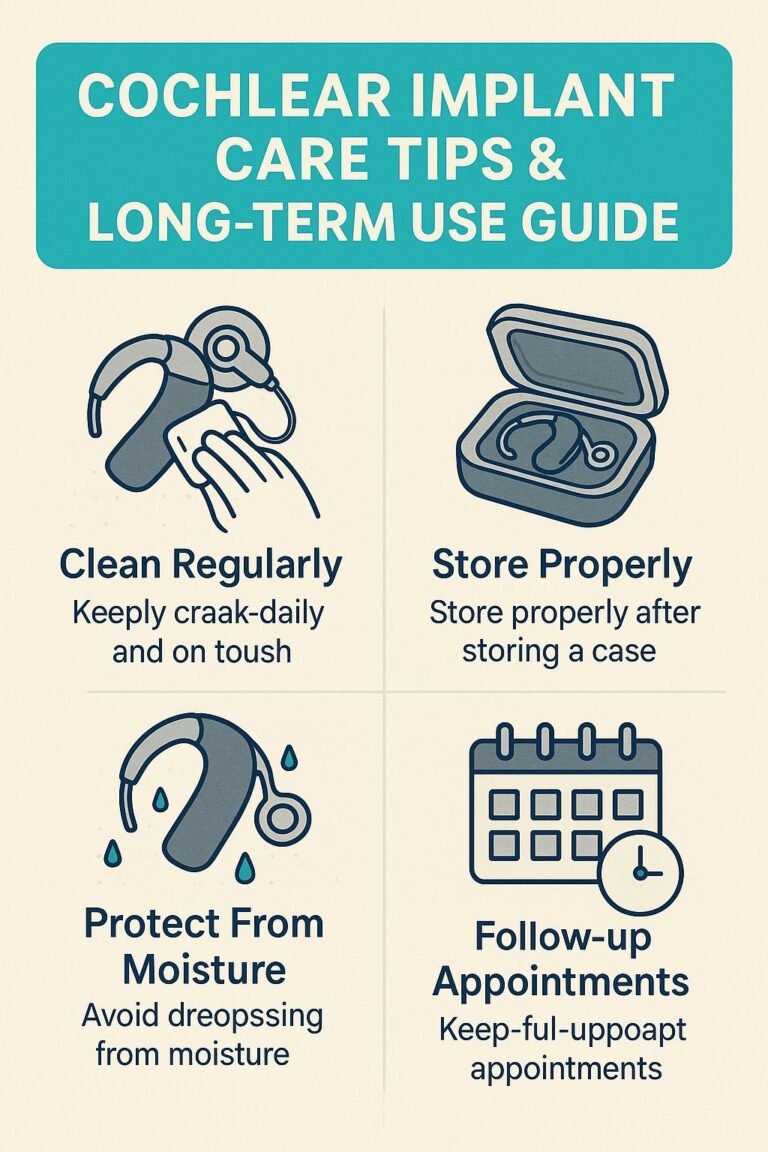Key Points to Remember
- Chronic inflammation caused by psoriasis can be controlled through diet, lifestyle modifications, and natural remedies.
- A Mediterranean diet, which is rich in fruits, vegetables, and healthy fats, can help lower inflammation.
- Regular physical activity, stress management techniques, and adequate sleep are all important for symptom management.
- Topical treatments, such as natural oils and oatmeal baths, can effectively soothe the skin.
- If symptoms are severe, it is recommended to seek advice from a healthcare professional and discuss personalized treatment options.
Understanding How to Manage Chronic Inflammation in Psoriasis
Living with psoriasis can be difficult, particularly when you have to deal with chronic inflammation. This condition affects not just your skin, but also your overall quality of life. However, there are effective strategies and tips that can help you manage these symptoms naturally. Let’s explore some practical ways to reduce inflammation and improve your well-being.
How Inflammation and Psoriasis are Connected
Psoriasis is an autoimmune disease that causes rapid skin cell growth, resulting in thick, red, and scaly patches on the skin. The root cause of this condition is chronic inflammation, which is when the immune system mistakenly attacks healthy skin cells. This inflammation is what makes psoriasis so stubborn and often challenging to control.
Identifying the Main Symptoms and Difficulties
While psoriasis symptoms can differ from one individual to the next, the most frequently reported signs are red skin patches covered with silvery scales, dry and cracked skin that can bleed, itching or burning sensations, and thick, pitted nails. In addition to the physical discomfort, psoriasis can also have a significant effect on a person’s mental health, causing stress and anxiety.
Food Choices to Lower Inflammation
What you eat can greatly impact the chronic inflammation that comes with psoriasis. You can lessen the intensity of your symptoms by eating the right foods. Here are some ideas you can add to your daily habits.
Foods to Eat That Help Reduce Inflammation
Adding anti-inflammatory foods to your diet can help control the symptoms of psoriasis. Here are some foods you might want to try:
- Fruits and Veggies: These are loaded with antioxidants and vitamins. Berries, leafy greens, and citrus fruits are all great picks.
- Omega-3 Fatty Acids: These are found in fish like salmon and mackerel, as well as in flaxseeds and walnuts.
- Whole Grains: Go for brown rice, quinoa, and whole wheat products.
- Healthy Fats: Olive oil and avocados are excellent sources of healthy fats that can reduce inflammation.
Foods to Steer Clear of for Psoriasis Management
While some foods can help lower inflammation, others can make psoriasis symptoms worse. It’s crucial to steer clear of:
- Processed Foods: These are often packed with unhealthy fats and preservatives that can cause inflammation.
- Red Meat: This is high in saturated fats, which can make inflammation worse.
- Dairy Products: Some people find that dairy makes their symptoms worse.
- Alcohol: Drinking too much alcohol can increase inflammation and cause flare-ups.
Why the Mediterranean Diet is Good for You
The Mediterranean diet is famous for its anti-inflammatory benefits. It focuses on fresh fruits and vegetables, whole grains, and healthy fats, which makes it a great choice for people with psoriasis. Here are some reasons why:
- Packed with antioxidants that combat inflammation.
- Contains healthy fats that enhance skin health.
- Provides a balanced approach to nutrition, fostering overall health.
By incorporating these dietary strategies, you can take an active role in managing chronic inflammation and bettering your psoriasis symptoms. Keep in mind, consistency is crucial. Stick with your dietary modifications for optimal results.
External Solutions and Homeopathic Practices
For psoriasis management, external solutions and homeopathic practices can be extremely useful in calming the skin and lessening inflammation. These treatments concentrate on directly applying helpful substances to the skin, offering relief and encouraging healing.
Natural Oils and Creams That Actually Work
Psoriasis can be a real pain, but natural oils and creams can provide some much-needed relief. They moisturize the skin, tone down redness, and soothe itching. Here are some of the best natural oils you can use:
- Coconut Oil: This oil is known for its ability to moisturize, which can help soften skin and reduce flaking.
- Tea Tree Oil: Tea tree oil has anti-inflammatory and antimicrobial properties that can help lessen redness and prevent infection.
- Aloe Vera Gel: Aloe vera can soothe skin and help calm any irritation.
You can apply these oils directly to the problem areas or mix them with your usual moisturizer for extra benefits. For further information on effective psoriasis treatment, consider exploring additional resources.
How to Properly Apply Moisturizers
Applying moisturizers is a key part of managing psoriasis. It helps maintain skin moisture and lowers the chance of outbreaks. Here’s how to apply moisturizers correctly:
- Put on moisturizers right after you take a bath to help keep your skin moist.
- Use thick creams or ointments that don’t have a scent for the most effective results.
- Put more on when you need to during the day, especially when the weather is dry.
Being consistent is very important, so make sure to moisturize your skin every day.
Why You Should Regularly Bathe with Oatmeal
Using oatmeal baths as a natural remedy can help alleviate the symptoms of psoriasis. Oatmeal has compounds that are known to comfort the skin and lessen itching. For more information on managing this condition, check out the treatment options for psoriasis provided by Mayo Clinic. Here are some tips on how to maximize the benefits of oatmeal baths:
Begin by pulverizing plain oatmeal until it becomes a fine powder. Add approximately one cup of the oatmeal powder to a warm bath and soak for 15-20 minutes. This can assist in softening the skin and relieving discomfort. Afterward, be sure to gently pat your skin dry to prevent irritation.
Taking frequent baths in oatmeal can dramatically increase the moisture in your skin and decrease inflammation, which makes it a great addition to your plan for managing psoriasis.
Natural Remedies for Inflammation Control
In addition to diet and topical treatments, natural remedies can provide extra help in managing the chronic inflammation that comes with psoriasis. These remedies focus on a whole-body approach to health and can work alongside traditional treatments.
Chronic inflammation is a key factor in managing psoriasis effectively. Understanding the underlying causes and triggers can help in developing a comprehensive treatment plan. Incorporating high-fiber fermented foods into your diet can significantly reduce inflammation and improve overall skin health. Additionally, staying informed about the latest research and strategies for psoriasis management is crucial for long-term success.
Let’s look at some effective alternative treatments:
How Acupuncture Can Help Manage Psoriasis
Acupuncture is a time-honored Chinese tradition that uses thin needles to stimulate certain points on the body. This is thought to help balance the body’s energy and encourage healing. In the case of psoriasis, acupuncture can help reduce stress and inflammation, both of which are common causes of flare-ups. If you’re interested in trying acupuncture, you might want to talk to a certified acupuncturist.
Plant-based Supplements with Inflammation-fighting Abilities
There are a number of plant-based supplements that have been found to be effective in reducing inflammation and managing the symptoms of psoriasis. These include:
- Turmeric: Turmeric is popular for its active compound curcumin, which has strong anti-inflammatory effects.
- Milk Thistle: This herb is good for liver health and may help to lessen the symptoms of psoriasis.
- Evening Primrose Oil: This oil is high in omega-6 fatty acids and can help to improve the health of your skin.
Make sure to talk to a healthcare professional before you start any supplements to make sure they are safe and right for your needs.
Using Mindfulness and Meditation
Using mindfulness and meditation as part of your daily routine can help manage stress and improve your mental health. Stress is a common trigger for psoriasis, so by incorporating these relaxation techniques, you can help prevent flare-ups. Deep breathing exercises, guided meditation, or yoga are great ways to relax and improve your overall quality of life.
Knowing When to Consult a Healthcare Provider
Despite the effectiveness of natural remedies and lifestyle modifications, it’s crucial to recognize when it’s time to consult a healthcare provider. They can provide tailored treatment plans and assist in managing severe symptoms, especially when dealing with complex conditions like pituitary gland disorders.
Identifying Serious Signs
When you notice symptoms like skin lesions all over your body, intense itching, pain in your joints, or symptoms of an infection, you should see a dermatologist. These could be signs of a more serious type of psoriasis or complications that need medical attention.
Why You Should Regularly See Your Dermatologist
It’s crucial to regularly see your dermatologist to keep an eye on your condition and adjust your treatment plan if necessary. Dermatologists can provide advanced treatments like biologics or phototherapy, which may be necessary for managing severe psoriasis. Maintaining good communication with your healthcare team is key to receiving the best care possible. For more insights, check out these global health trends that could impact your treatment options.
So, to sum it up, managing chronic inflammation in psoriasis requires a well-rounded approach, combining diet, lifestyle changes, natural remedies, and professional medical advice. By understanding and implementing these strategies, you can take control of your psoriasis and improve your quality of life. For more information, you can explore the connection between psoriasis and chronic inflammation.
Medication Use Instructions
In the management of psoriasis, medication can be an essential component, particularly for those with severe cases. It is crucial to adhere to the instructions provided by your healthcare provider. Medications such as topical corticosteroids, oral retinoids, and biologics can effectively manage inflammation and alleviate symptoms. Be sure to take your medications as directed and promptly report any adverse effects to your doctor.
Pairing medication with lifestyle changes can improve results. Remember, medication is just one piece of the puzzle when it comes to a complete treatment plan. Regular follow-ups with your healthcare provider ensure that your treatment stays effective and tailored to your needs.
Wrapping Up: How to Get Long-Term Relief
Getting long-term relief from psoriasis is achievable if you know what to do. If you understand and manage what causes chronic inflammation, you can greatly lessen flare-ups and enhance your life quality. It may take some time and persistence, but the outcome is worth the work.
Take a comprehensive approach that includes diet, lifestyle modifications, natural remedies, and medical treatment when needed. Stay updated on the latest research and treatments to continue enhancing your management plan. With dedication and the right support, long-term remission is achievable.
Regular Management for Symptom Control
Regular management is crucial in controlling psoriasis. Regularly following your treatment plan, whether it involves medication, diet, or natural remedies, helps maintain control over symptoms. Create a routine that incorporates these elements into your daily life, and stick to it. Over time, this consistency can lead to fewer flare-ups and improved skin health.
Establishing a Support System
Creating a network of supportive individuals is priceless. This network can be made up of healthcare providers, family members, friends, and support groups. They can provide you with motivation, shared experiences, and helpful advice. Don’t be afraid to ask for help when you need it, as it can greatly impact your experience with psoriasis. For additional guidance, consider exploring treatment and recovery strategies that may offer insights into managing chronic conditions.
Establishing Attainable Health Objectives
Establishing attainable health objectives can keep you inspired and on track. Begin with minor, reachable goals, such as adding more anti-inflammatory foods to your meals or meditating every day. Slowly expand on these victories to achieve bigger objectives. Commemorate your accomplishments as you go, and bear in mind that any progress is still progress, no matter how insignificant it may seem.
“A journey of a thousand miles begins with a single step.” – Lao Tzu
By taking one step at a time, you can make meaningful progress in managing psoriasis and achieving a healthier, happier life.
Common Questions
It’s normal to have questions about psoriasis, especially if you’re trying to find the best ways to manage it. For more information, you can explore psoriasis diagnosis and treatment options available. Here are some of the most common questions people ask, along with their answers.
What are some effective natural treatments for psoriasis?
Top natural treatments include applying coconut oil, tea tree oil, and aloe vera to moisturize and calm the skin. Taking oatmeal baths can also help to reduce itchiness and inflammation.
What is the connection between diet and psoriasis and inflammation?
Your diet can be a powerful tool in managing inflammation. Foods that fight inflammation, like fruits, vegetables, and omega-3 fatty acids, can help lessen symptoms. Steering clear of processed foods, red meat, and alcohol can also help keep flare-ups at bay.
Do lifestyle changes affect psoriasis symptoms?
Indeed, lifestyle changes can make a big difference. Regular physical activity, techniques for reducing stress, and getting enough sleep can all help lower inflammation and improve overall health.
When is it necessary to see a doctor for psoriasis?
It’s important to see a doctor if you have severe symptoms like widespread skin lesions, intense itching, or joint pain. It’s also a good idea to see a dermatologist regularly to keep an eye on your condition and adjust treatments as necessary. Additionally, some high-fiber fermented foods may help reduce inflammatory diseases, which could be beneficial for managing psoriasis symptoms.
Can I find any effective treatments for psoriasis over the counter?
Yes, you can find over-the-counter treatments such as hydrocortisone creams and coal tar products that can help with mild symptoms. However, it’s always a good idea to talk to a healthcare professional who can give you a full treatment plan, especially if your symptoms are severe.










